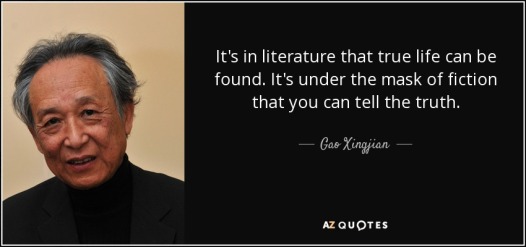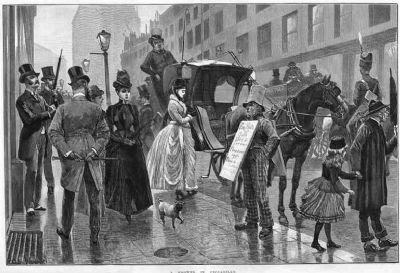Twelve years old Molly Gibson has her little world come into a hectic when she is invited to join a gala in the mansion of the earl and the countess Lord and Lady Cunmor of the Towers. This is the kind of much-awaited event for ladies at the Hollingford, the town when Molly, the heroine of the novel, resides with his handsome, respectable father and doctor Mr. Gibson. Her mother has passed away when she is just three years old. Since Mr. Gibson often travels to meet then cure his patients, Molly is taken care by her nurse, Betty.
This innocent, poor, sweet girl visits the Towers with Miss Browings, who have been so close with the Mr. Gibson’s family, ever since the mother is alive. The occasion proves to be so boring, hot for Molly that she decides to take a walk to the garden without any knowledge of the Miss Brownings.
She wanders around the yard, gets exhausted then falls asleep. Thanks to the good care of Mrs. Kirkpatrick, or she goes by name of Clare, the governess of the house, Molly is very well treated although she feels so awkward being the mansion. Her father, or Molly calls as papa, picks her up the next day.
Years go forward and Molly is now 17 years old. She grows into a beautiful, innocent and super tender young girl. Her kindness catches the heart of Mrs. Hamleys, who repeatedly persuades Mr. Gibson of bringing her to her Hamley mansion for a couple of days for companionship. Mrs. Hamley, who have two sons – Osborne and Roger, is so fond of Molly. Mr. Gibson takes his daughter to the Hamleys after he finds out that one of his pupils has a crush on Molly. Mr. Gibson thinks Molly is too early to fall in love thus he puts her in the Hamleys for summer holiday and for the best reason is distancing her from the student.
Despite all of her unawareness on the cause of her visit to the Hamleys, Molly agrees to go there. She befriends with the sick Mrs. Hamley and both of them share a lot of good times. She even becomes her confidante. Mrs. Hamley regards Molly as her daughter. She tells the stories of his sons, of how she is so proud of Osborne as someone who is so skilled at poetry writing. Given Mrs. Hamley’s complimentary opinions about Osborne, Molly starts developing her admiration to him.
Mr. Gibson and Mr. Hamley are such good friends. Mr. Gibson likes his pal’s straight-forwarded, honest, easily get-tempered yet good-hearted traits. On one occasion, Mr. Hamley mentions Mr. Gibson’s widower, the subject that takes the latter’s by surprise yet catches his deep thinking.
At the same time, Mrs. Kirkpatrick is surprised that the Lady Cunmor and Lord Cunmor brings up the possibility of the marriage between Mrs. Kirkpatrick or Clare with Mr. Gibson. In short, Mr. Gibson proposes Clare then get married despite an initial rejection from Molly. Cynthia, Clare’s only daughter, is not present in the wedding. In spite of Clare’s kindness when Molly gets lost in the Towers, both of them often get caught in arguments. Clare notices small details, she wants Molly to behave ladylike. She turns out to be a bit demanding, manipulative. She sometimes complains of not being taken whenever her husband sets out for curing his patients. Although Molly gets sick with her stepmother’s beautiful yet vain trait, the young girl prefers to stay silent for the sake of her father’s happiness as what Roger advises her to do.
Meanwhile, the Hamleys sets into a period of darkness not long after the wedding takes place. Mrs. Hamley’s health deteriorates after the family learns on the overwhelming debt Osborne has to bear during his education. What makes it even unbearable for Mr. Hamley is that Osborne does not want to explain where the money goes. Mr. Hamley expels him, asks him to only return home when he can pay all the debt. This father-and-son conflict causes Mrs. Hamley’s condition to get even more worsening until a few days before Molly leaves her, Mrs. Hamley barely concious, she does not even talk to her, she grows much more distant and depends much of her life on medicines.
She eventually passes away and the life in the Hamleys never gets the same again. The relationship between Mr. Hamley and Osborne are often involved in arguments; Mr. Hamley gets frustrated with Osborne’s unexplained debt causes, the firstborns reluctant outdoor activities and his relatively high spending. On the other hand, Mr. Hamley’s ill-tempered character does not align with Osborne’s yet is in tune with Roger given the second-born patience.
Molly finally welcomes Cynthia. Surprisingly, they become very close in relatively short time. Cynthia is a graceful, pretty, charming young lady who spends two years studying in France. Initially, Cynthia is a gracious listener and they can get along very shortly. Cynthia admits that she really loves her new stepsister and can get closer to her than her own mother because the mother-and-daughter have not seen each other for two years.
Cynthia is such a complex and complicated character. To Molly, she is so warm, cheerful and can share a lot of stories with her. To her stepfather, Cynthia can be so calm, relaxed, a good kind of daughter but in front of her own mother, Cynthia is sarcastic, a bit mean, outspoken. Mrs. Gibson and Cynthia sometimes can argue over small things that Mrs. Gibson find it a bit hard to control Cynthia.
Occasionally, Mr. Preston, the Tower’s agent, pays a visit to the Gibsons. The man who is detested by Lady Harriet, is attracted with Cynthia and sometimes, compliments Molly. This coquettish behaviour makes Molly so sick. On the other hand, Roger falls in love with Cynthia. He even proposes her before he departs for a scheduled two-year experiment overseas. Although Cynthia accepts his proposal, Cynthia does not want to inform this news, even to Roger’s father. She hardly calls this as an engagement for no one knows what may happen in two years to come. Their agreement is known by Mr. Hamley via Mr. Gibson who has promised to tell everything to Mr. Hamley if there were a special relationship between Roger and Cynthia or between the former and Molly.
After Roger leaves for his funded observation about nature, the center of the problems in the book is all about the suspicious connection between Mr. Preston and Cynthia which forces Molly to take actions. It is later revealed that Cynthia once agrees to marry with Mr. Preston, a promise that keeps his eyes on her throughout the years. She admits to Molly that she does that because she once owes some amount of money back then. She once likes him but the feeling is no longer present. Molly urges Cynthia to tell all of her problems to her father so that Mr. Preston won’t press her about the marriage but Cynthia refuses to do so.
Molly comes to rescue her stepsister’s fate. She agrees to meet Mr. Preston to persuade the latter to abandon the promised marriage, which goes unfulfilled somehow. Their meeting and another one that takes place in a different spot arises suspicions among the Hollingford citizens. The Miss Brownings then investigates this matter and informs Molly’s affairs with Mr. Preston to his father. Luckily, Mr. Gibson does not let his mind be consumed with this gossip. He questions his daughter about the matter. Molly answers his father’s curiosity with firmness, honesty without any harsh words that may downgrade Cynthia’s reputation.
On the other hand, the house of Hamley is so full with problems after Roger leaves the house. Despite the money that he will send back to his father, Mr. Hamley feels lonely. His relationship with Osborne doesn’t get any better. The two seems hesitant to start things all over again. Mr. Hamley is too occupied with his financial problems, his anger to Osborne remains on fire. Osborne is too absorbed with his own problems. He seeks money by writing poems but brings no significant outcome thus he has to ask for Roger’s help on this. The news that his wife, Aimee, gets pregnant brings him joy yet causes a headache for he lacks of money. The silence of the two is broken with the death of Osborne, who has been battling with his digestion for some moments.
The fact that Mr. Hamley does not know about his son’s condition plus their war of words has made him so deep in sadness and regret. And when Molly tells him all that she knows about Osborne’s secret marriage, Mr. Hamley gets even more depressive. He believes that the marriage plays a key role on his quietness for he completely understands Mr. Hamley does not like him to marry a Frenchwoman. Instead of potentially putting his father in an outrage, Osborne opts to keep silent all this time.
Molly, under the advice of his father, writes a letter to Aimee concerning the health of his poor husband, who has passed away by the time the letter is composed. Aimee, who has plenty experiences in taking care of the sick, feels the condition is worse than she thinks. She holds her son then sets out a journey to Hollingford.
She cries all the way in the trip and by the moment she gets to the house she learns that all her anxiety is indeed true. While Mr. Hamley is more interested with taking care of his grandson, Molly and Mr. Gibson helps Aimee to cope with the hard times. The widow initially does not want to eat. All she wants to do is motionlessly gazing at the windows. Only after Mr. Gibson thrusts her son to Aimee’s body that the woman starts swallowing the food.
As the sorrow plaguing the house of Hamley starts subsiding, a contrastive fact occurs in the Gibsons family as Cynthia’s affairs are uncovered. It is Lady Harriet, who after learns the gossip about Molly, confronts Mr. Preston and inquires him. Mr. Preston tells the truth which satisfies Lady Harriet. Although Lady Cunmor once promises not to opn the secret can’t help telling this to Clare when the latter pays a visit. Lady Cunmor even attack Clare on the latter’s ways of raising Cynthia for her actions put Molly into a great trouble.
The tension boils up when everything that relates to Cynthia’s affairs are completely untold. Mr. Gibson’s fury makes his relationship with his wife a bit shaky for Clare defends Cynthia. Cynthia is angry with Molly, too. But not long after this incident, Cynthia amends her mistakes. She sends a letter to Roger saying she cancels the marriage proposal. When Roger gets back home a few months earlier that the schedule because of her brother death, Cynthia later gets married with Mr. Henderson, a lawyer from London.
Molly can’t help being overjoyed with his arrival. Although she initially acts normal as a good friend to Roger but she gradually acts a bit weird that raises Roger’s suspicions. He eventually admits to Mr. Gibson on his love to his daughter and delays confessing his true feeling as he fears his past feeling to Cynthia taints his love image to Molly. Mr. Gibson encourages Roger to fight for her love and he does that implicitly right before he sails back again in the sea. He makes unique, funny gestures under the rain that are visible from Molly’s room window. It’s a bit insufficient to translate Roger’s gestures for readers but the writer says Molly feels genuinely happy with what Roger does before they parts for several months to come.

